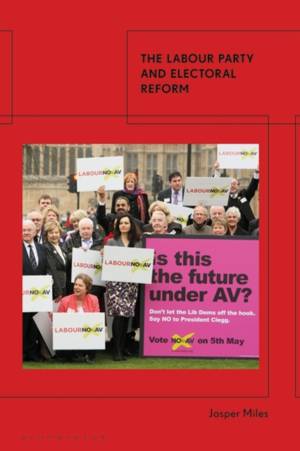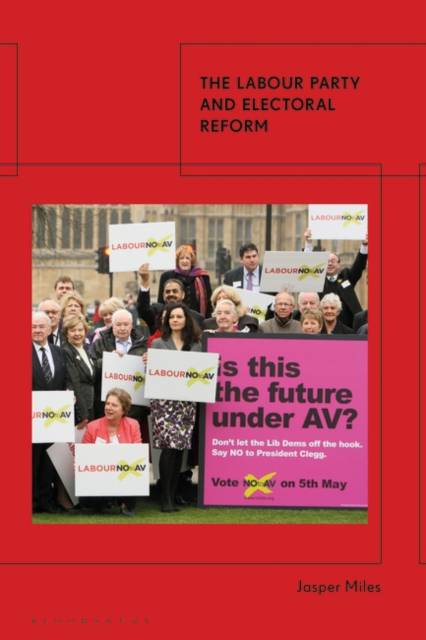
- Retrait gratuit dans votre magasin Club
- 7.000.000 titres dans notre catalogue
- Payer en toute sécurité
- Toujours un magasin près de chez vous
- Retrait gratuit dans votre magasin Club
- 7.000.0000 titres dans notre catalogue
- Payer en toute sécurité
- Toujours un magasin près de chez vous
Description
The issue of electoral reform has divided the Labour Party since its inception, but only for a brief period in the early 20th century has the Party been committed to reforming first-past-the-post (FPTP). Now, having suffered four successive general election defeats, the Labour Party will have to reconsider its electoral strategy if it is, once again, to become a party of government. For some, a commitment to electoral reform is an indispensable step to widen support, transform the Party, and unlock British Politics. For others, the present system still offers the best hope of majority Labour governments, avoiding deals with the Party's rivals and the watering down of Labour's social democratic agenda.
This book explores the Labour Party's approaches towards reforming the Westminster electoral system, and more widely, its perception of electoral pacts and coalition government. The opening chapters chart the debate from the inception of the Party up to the electoral and political impact of Thatcherism. From there, the book takes a closer look at significant recent events, including the Plant Report, the Jenkins Commission, the end of New Labour, the Alternative Vote Referendum, and closing with the Labour leadership containing the matter at Party Conference, 2021. Importantly, it offers an assessment of the pressures and environment in which Labour politicians have operated. Extensive elite-level interviews and new archival research offers the reader a comprehensive and definitive account of this debate.Spécifications
Parties prenantes
- Auteur(s) :
- Editeur:
Contenu
- Nombre de pages :
- 248
- Langue:
- Anglais
Caractéristiques
- EAN:
- 9780755640683
- Date de parution :
- 06-04-23
- Format:
- Livre relié
- Format numérique:
- Genaaid
- Dimensions :
- 156 mm x 234 mm
- Poids :
- 526 g

Les avis
Nous publions uniquement les avis qui respectent les conditions requises. Consultez nos conditions pour les avis.






